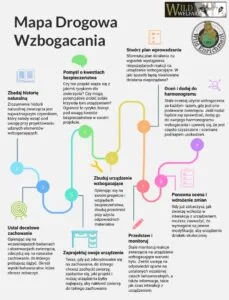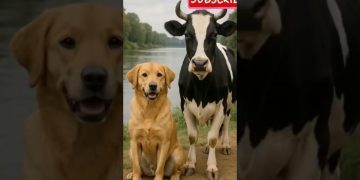In an inspiring display of international collaboration, Wild Welfare, a leading animal welfare charity, joined forces with Karolina Mól-Woźniak, a specialist in species conservation and animal welfare at the award-winning Wrocław Zoo in Poland. Karolina contacted the UK based organisation after discovering their popular online “Enrichment Road Map” resource while developing a lecture on animal enrichment. Creating and utilising appropriate enrichment is an integral component of captive animal husbandry that strives to enrich the physical and mental health of animals. Through constructing dynamic environments that promote naturalistic behaviour opportunities for animals, facilities such as Wrocław Zoo are able to enhance the welfare and overall quality of life for the animals in their care.
Wrocław Zoo, a member of the European Association of Zoos and Aquaria (EAZA) and World Association of Zoos and Aquariums (WAZA), home to over 1,100 different species, are keen to lead the pack in setting high standards of animal welfare. “This helpful tool will help to guide our animal carers through the detailed process of creating, applying, and evaluating successful enrichment provision”, explained Karolina, who was keen to share the Enrichment Road Map resource amongst her colleagues.
Despite the document having already been translated into 22 different languages, including Vietnamese, Malay, Arabic, and Japanese; Polish however was not available. Understanding the value of this document would have on her upcoming lecture and the greater impact this could have on animal welfare across Poland in general, Ms. Mól-Woźniak reached out to Wild Welfare to ask for assistance to produce a Polish language version.
Karolina would go on to collaborate with the team at Wild Welfare to translate the resource in time for her upcoming presentation. Wild Welfare have now also made the printable document accessible to download for free via their website, adding yet another language to the lineup.
Wild Welfare originally developed the Enrichment Road Map in partnership with Kyle Banton-Jones of Wild Enrichment, to provide animal carers with a clear framework for implementing effective enrichment strategies. This practical tool helps walk users through each important stage of observing, goal setting, planning, and reviewing enrichment projects, ensuring they specifically meet the needs of each animal, while delivering tangible positive welfare outcomes. Such outcomes can help to reduce abnormal behaviours and stereotypies triggered by stress. These positive changes can take many forms, from substrates that allow meerkats to dig or pigs to root, dynamic branches that encourage flight and movement in birds or climbing opportunities for arboreal primates. The introduction of puzzle feeders can also help facilitate manipulation, prolonging feeding times and support cognitive abilities, while olfactory enrichment (regarding smell senses) may promote playful investigation or exploration in big cats.
“I am ever so grateful to Wild Welfare and their prompt and professional help. The Polish Enrichment Road Map will be a crucial tool in my future talks and training sessions. I’m really excited to be able to share this excellent tool with other professionals across Poland”, expressed Karolina Mól-Woźniak.
Sarah Bonser-Blake, Wild Welfare’s Field Manager for Animal Welfare, added: “It is always wonderful to be able to extend the distribution of our learning resources by having them available in multiple languages. We have been fortunate enough to work with many amazing people to translate our resources, and this collaboration is another excellent demonstration of the animal care world supporting and assisting one another. Many thanks to Karolina for providing the important translation.”
Wild Welfare offers a host of free online resources including an accessible e-learning course that covers key models such as animal welfare concepts, behavior, health care and enrichment provision. All 23 language versions of the Enrichment Roadmap, along with many other downloadable resources are now available for free at WildWelfare.org.
ENDS
Wild Welfare is devoted to improving the welfare of captive animals across the world. You can support our efforts by sharing this article, signing up to our newsletter, following our social media accounts (Facebook and Instagram), or by making an online donation. Every small contribution can help us to develop our vital accessible animal resources. Thank you.
Notes to Editors
For more information or interview requests please contact Wild Welfare on communications@wildwelfare.org
Wild Welfare is a global organisation committed to improving animal welfare for captive wild animals. By uniting the world’s leading zoos, zoo associations and animal welfare organisations, we build trusting partnerships that help provide long-term solutions to critical wild animal welfare issues.
Our vision is to end the suffering of captive wild animals around the world and ensure full and sustainable protection is given to all animals in human care. Find out more at wildwelfare.org. Registered charity in England (no.1165941).










Discussion about this post